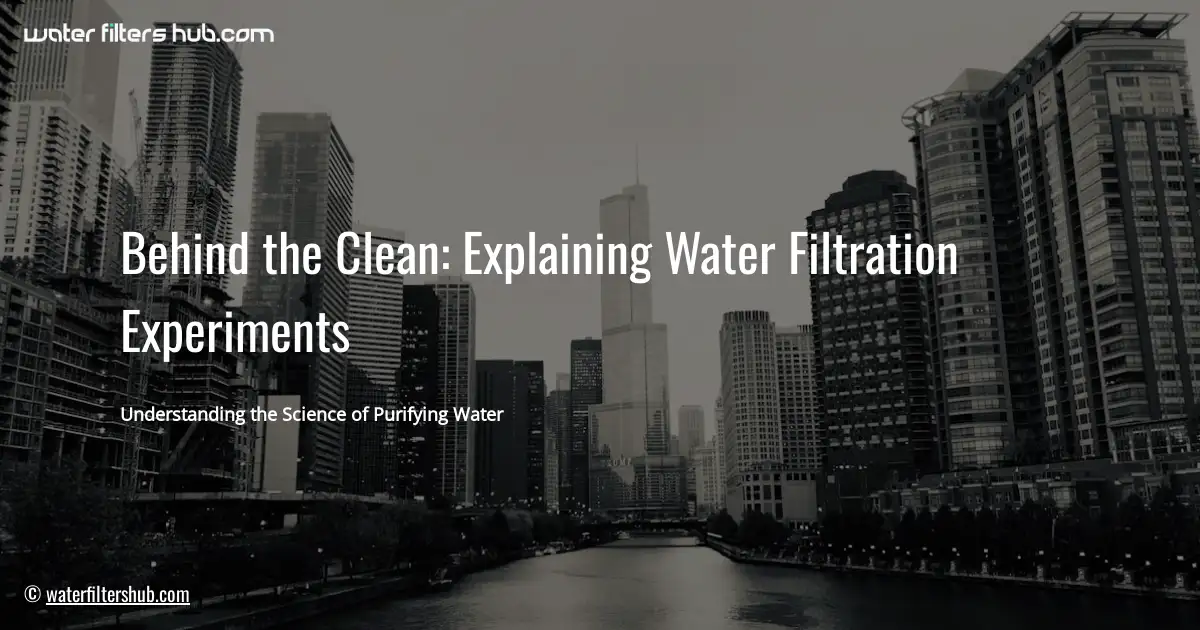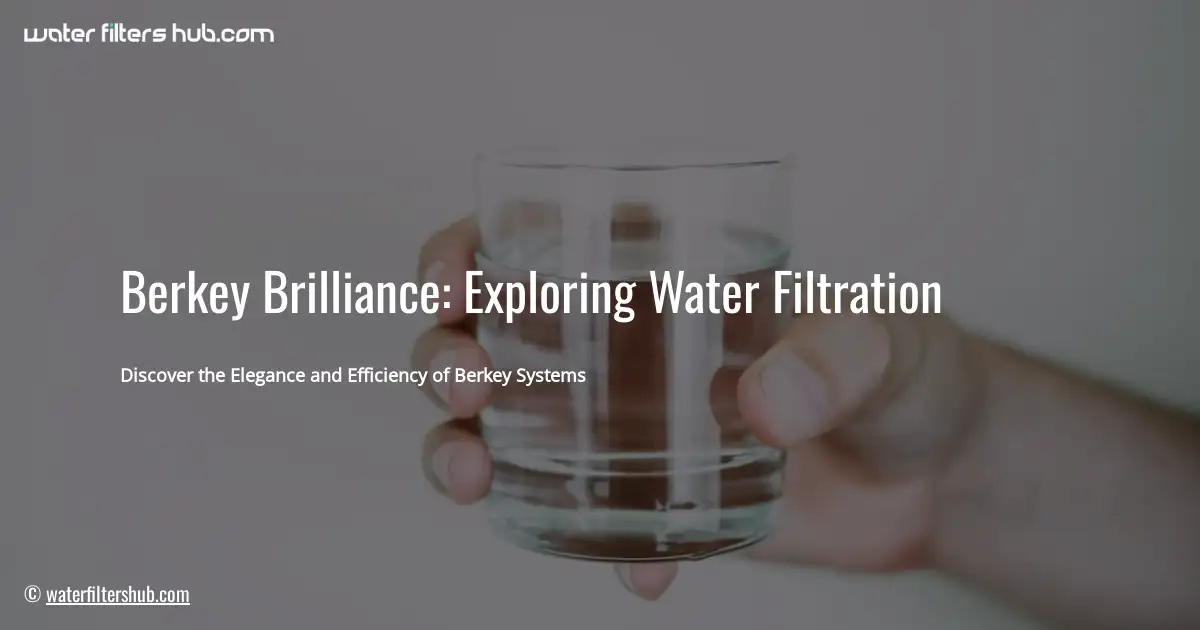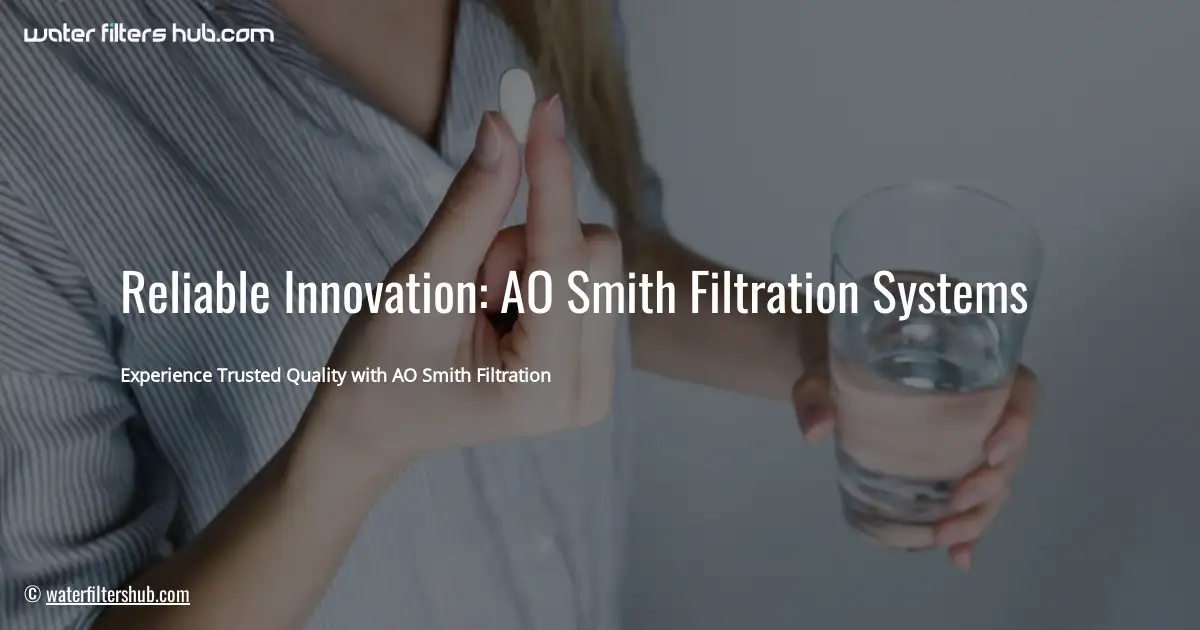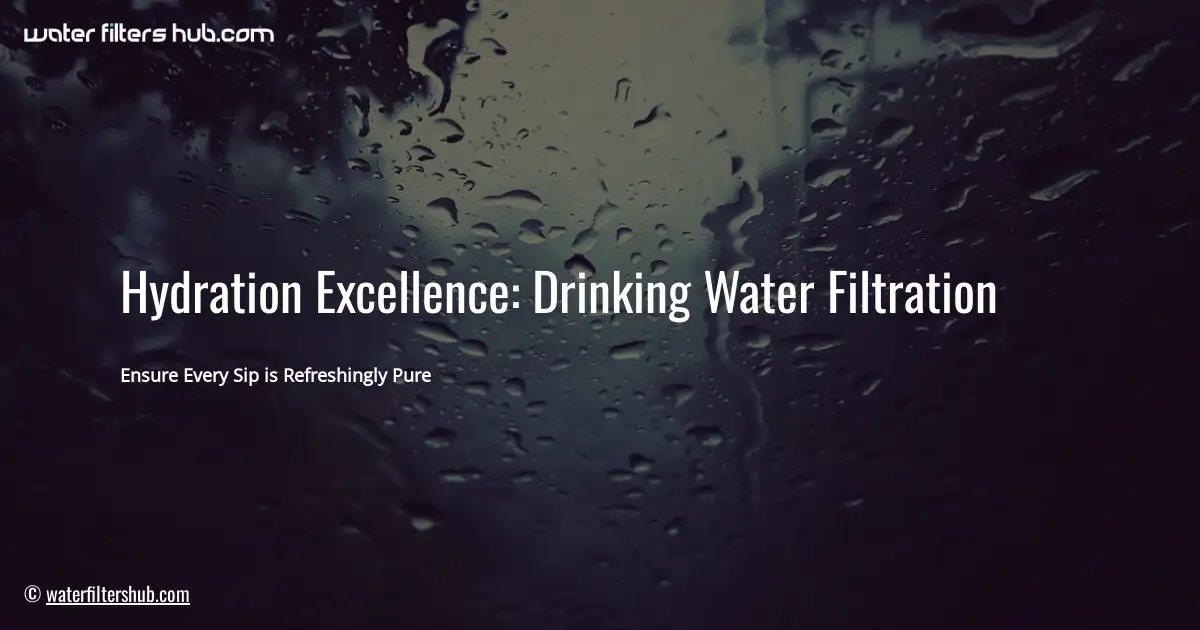Evaluating the Effectiveness of Different Water Filters
Introduction
“Water is the elixir of life,” they say, and it’s true! 💧 Water makes up over 60% of our bodies, so it’s no wonder that its quality directly affects our well-being. But here’s the catch: not all water is created equal. 🚱
“You are what you drink,” goes another saying. So, if you’re sipping on contaminated water, you’re essentially inviting toxins into your body. 🤒 That’s why it’s crucial to have a reliable way to filter out these impurities and ensure the water you drink is as pure as possible. 💧
That’s where water filters come in. They act as your water’s guardian angels, removing harmful substances and leaving you with clean, healthy H2O. 😇 So, if you’re serious about your health and hydration, read on to discover the effectiveness of different water filters and how they can upgrade your water game. 💪
Types of Water Filters
When it comes to water filters, there’s a whole world of options out there. From the classic pitcher filter to the high-tech reverse osmosis system, each type has its own strengths and weaknesses.
Activated Carbon Filters: These filters use activated carbon, a porous material that traps contaminants like a magnet. They’re great for removing chlorine, taste, and odor, but not so effective against heavy metals or bacteria.
Reverse Osmosis Systems: These systems use a semipermeable membrane to remove a wide range of contaminants, including heavy metals, bacteria, and viruses. They’re the most effective type of filter, but also the most expensive and require professional installation.
Pitcher Filters: These filters are easy to use and affordable, but they’re not as effective as activated carbon or reverse osmosis systems. They’re best for removing chlorine and taste, but not much else.
Contaminant Removal Capabilities
Water filters vary in their ability to remove different contaminants. Some filters are highly effective at removing certain contaminants, while others may not be as effective. It’s important to choose a filter that is effective at removing the contaminants that are present in your water.
Common contaminants found in water include:
- Chlorine
- Lead
- Bacteria
- Cysts
- Heavy metals
- Pesticides
- Herbicides
The table below compares the effectiveness of different types of water filters in removing common contaminants.
| Contaminant | Activated Carbon | Reverse Osmosis | Pitcher Filter |
|---|---|---|---|
| Chlorine | Yes | Yes | Yes |
| Lead | Yes | Yes | No |
| Bacteria | Yes | Yes | No |
| Cysts | No | Yes | No |
| Heavy metals | Yes | Yes | No |
| Pesticides | Yes | Yes | No |
| Herbicides | Yes | Yes | No |
As you can see, reverse osmosis systems are the most effective type of water filter at removing a wide range of contaminants. Activated carbon filters are also effective at removing many contaminants, but they are not as effective as reverse osmosis systems. Pitcher filters are the least effective type of water filter, and they are not effective at removing all contaminants.
Flow Rate and Capacity: The Key to Convenience and Efficiency 💦
When choosing a water filter, flow rate and capacity are crucial factors to consider. Flow rate refers to the amount of water that can pass through the filter in a given time, while capacity indicates how much water the filter can hold before needing replacement.
Just imagine trying to fill a glass of water from a filter with a slow flow rate. It’s like waiting for paint to dry! On the other hand, a filter with a high flow rate allows you to quench your thirst quickly and effortlessly.
Capacity is equally important. A filter with a small capacity may require frequent replacements, which can be inconvenient and costly. It’s like having a tiny gas tank in your car – you’re constantly stopping for refills. In contrast, a filter with a large capacity can handle more water before needing to be changed, saving you time and hassle.
So, when selecting a water filter, strike a balance between flow rate and capacity. Opt for a filter that provides a steady stream of clean water without the need for constant replacements. Remember, convenience and efficiency are key to making your water filtration experience a breeze!
“Just like changing the oil in your car, regular filter replacement is crucial for maintaining optimal performance,” I often tell my friends. Water filters, like any other device, need some TLC to keep them in tip-top shape. By replacing the filter as recommended, you ensure that it continues to effectively remove contaminants and provide you with clean, healthy water.
Neglecting filter replacement can lead to a buildup of contaminants, which can compromise the filter’s performance and even pose health risks. Imagine drinking water that’s been sitting in a dirty filter for months – not the most appetizing thought, right? So, mark your calendar and make filter replacement a part of your regular routine. It’s a small step that can make a big difference in your water quality and overall well-being.
HOW GOOD ARE WATER FILTERS ON YOUTUBE
Cost and Value 💰
When it comes to water filters, the price tag can vary widely. 💸 From budget-friendly options to high-end systems, it’s important to consider both the initial cost and the ongoing expenses. 💰
The lifespan of a water filter also plays a crucial role in determining its value. ⌛️ Some filters may need to be replaced more frequently, while others can last for years. 📆 It’s like buying a car – you want to find the best balance between quality and affordability. 🚗
To help you make an informed decision, I’ve put together a simple table that compares the estimated cost and lifespan of different types of water filters:
| Filter Type | Estimated Cost | Lifespan |
|---|---|---|
| Activated Carbon | $20-$100 | 6-12 months |
| Reverse Osmosis | $150-$500 | 2-5 years |
| Pitcher Filters | $20-$50 | 2-3 months |
As you can see, the cost and lifespan vary significantly depending on the type of filter. 📊 It’s worth taking the time to research and compare different options to find the one that best fits your budget and needs. 💰
Independent Testing and Certifications 🏆
When it comes to our health, we want to know that the products we use are safe and effective. That’s why independent testing and certifications are so important for water filters.
Independent testing organizations, like NSF International and WQA, put water filters through rigorous tests to ensure they meet certain standards. These tests measure the filter’s ability to remove specific contaminants, such as chlorine, lead, and bacteria.
Certifications from these organizations give us peace of mind that the water filter we’re using is doing its job. It’s like having a trusted friend who’s checked out the filter and given it the thumbs up.
So, when you’re shopping for a water filter, be sure to look for one that has been independently tested and certified. It’s the best way to ensure you’re getting a quality product that will protect your health.
Choosing the Right Filter for Your Needs 👨🔬
When selecting a water filter, it’s crucial to consider your specific requirements. 🏡 Like choosing the right tool for a job, the best filter depends on your water quality, usage, and budget. 💰
Contaminant Levels: ☣️
Test your water to identify the contaminants you need to remove. 🧪 Lead, chlorine, and bacteria are common culprits. 🚫 Choose a filter that effectively targets these specific contaminants. 🎯
Water Usage: 💧
Estimate how much water you use daily. 🚰 A high-capacity filter is essential if you have a large household or consume a lot of water. 👨👩👧👦
Budget: 💸
Water filters vary in price. 💰 Consider the initial cost, as well as ongoing maintenance and replacement expenses. 🔧 It’s worth investing in a high-quality filter that will provide long-term value and peace of mind. 💆♀️
Remember, choosing the right water filter is like finding the perfect fit for your water needs. 💧 By considering these factors, you can ensure clean, safe, and delicious water for you and your loved ones. 👨👩👧👦
Conclusion
“Water is the elixir of life,” a timeless adage that underscores the profound significance of this precious resource. Clean, safe drinking water is not merely a luxury; it’s a fundamental human right. Water filters play a pivotal role in safeguarding our health by removing harmful contaminants from our tap water.
Investing in a high-quality water filter is an investment in our well-being. It ensures that the water we drink, cook with, and bathe in is free from impurities that can compromise our health. By choosing a filter that meets our specific needs and circumstances, we can enjoy the peace of mind that comes with knowing our water is clean and safe.
Remember, the quality of our water has a direct impact on the quality of our lives. By prioritizing clean water, we prioritize our health, our families, and our future. Let’s all make a conscious effort to filter our water and safeguard the well-being of generations to come.
Call to Action 📣
Empower Yourself with Knowledge 📚
“Knowledge is power,” as the adage goes. When it comes to your health and well-being, this couldn’t be truer. Arm yourself with the information you need to make informed decisions about your water filtration system. 🧐
Take the time to research different filters, their capabilities, and their maintenance requirements. Consult reputable sources, read reviews, and don’t hesitate to seek expert advice. The more you know, the better equipped you’ll be to choose the perfect filter for your home and family. 🏡
Remember, clean water is essential for a healthy life. By investing in a quality water filter, you’re investing in your future. So, don’t wait—take action today to ensure that your family has access to the purest, most refreshing water possible. 💧
CHOOSING HOME WATER FILTERS & OTHER WATER TREATMENT SYSTEMS | CDC
THE EFFECTIVENESS OF HOME WATER PURIFICATION SYSTEMS ON THE … – NCBI
WHAT WATER FILTERS ARE BETTER THAN BRITA
HOW ARE WATER FILTERS MADE
HOW TO CLEAN BERKEY WATER FILTERS THE RIGHT WAY
HOW TO CHANGE APEC WATER FILTERS
HOW OFTEN SHOULD WATER FILTERS BE CHANGED






Leave a Reply